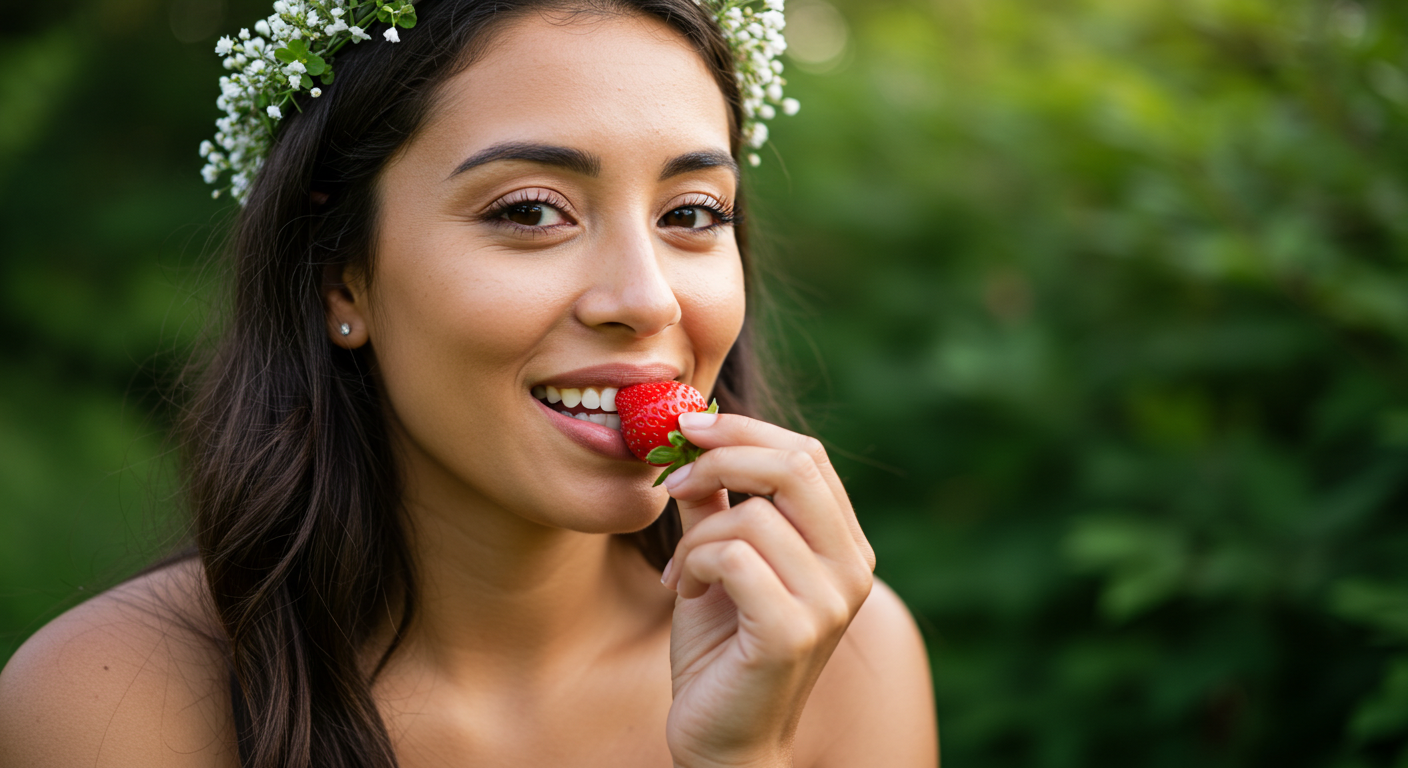Top Takeaways and Key Concepts
Be present during meals: Focus on flavors, textures, and aromas, not distractions like screens or multitasking.
Increase awareness of hunger and fullness cues: Stop eating when satisfied, not when overfull.
Enjoy food without guilt: Savor treats slowly, appreciating each bite instead of rushing through.
Incorporate mindful eating to build healthy habits: Recognize how foods make you feel, leading to better choices.
Meal plan with mindfulness: Prepare balanced meals visually and nutritionally to promote healthy eating throughout the week.
Summary of This Article
This article emphasizes the importance of mindful eating for sustainable weight loss and healthier eating habits. It highlights the role of awareness in recognizing hunger and fullness cues, allowing for guilt-free indulgence in treats. By practicing mindful eating, we can enjoy food more consciously and make healthier choices. The article also advocates for mindful meal planning, where we intentionally select foods that nourish us and bring joy. Finally, it encourages flexibility and fun in the process to make nourishing ourselves an enjoyable experience.

Mindful eating is like the secret sauce of sustainable weight loss. It’s that magical ingredient that can turn a bland diet into a flavorful journey, making every meal an adventure rather than a chore.
If you’ve ever found yourself scarfing down a bag of chips while binge-watching your favorite show—only to realize you’ve eaten half the bag without tasting a single chip—you’re not alone. Let’s dive into why mindful eating is essential for lasting weight loss and how it can transform your relationship with food.
Understanding Mindful Eating
First off, what exactly is mindful eating? Well, it’s not just about chewing your food twenty times or pretending to be on a cooking show as you prepare dinner (though that can be fun). Instead, it's about being fully present during meals. This means paying attention to the flavors, textures, and aromas of your food while also tuning in to your body’s hunger and fullness cues.
By practicing mindfulness at mealtime, we allow ourselves to enjoy our food instead of treating it like an afterthought. Honestly, have you ever tried to savor a piece of chocolate cake while scrolling through Instagram? Good luck! You’ll probably miss out on all those rich flavors because your brain is busy contemplating whether that influencer really needs another vacation in Bali.
The Power of Awareness
Let’s see how awareness plays a significant role in mindful eating. When we eat mindlessly—like during late-night Netflix marathons—we often overlook when we're actually full. I remember one time I polished off an entire pizza because it was “just there,” only to feel like I’d swallowed a small planet afterward. The regret was real!
Being aware helps us recognize those subtle signs our bodies give us when they’re satisfied. Maybe it's the slight decrease in hunger pangs or perhaps you're no longer dreaming about the next bite of lasagna. Whatever it may be, acknowledging these signals allows us to stop before we reach uncomfortable levels of fullness.
Enjoying Food Without Guilt
Now here comes the fun part: guilt-free indulgence! In my previous attempts at dieting, I often felt guilty for enjoying treats—a classic case of “I can’t believe I ate that!” But with mindful eating, everything changes. By allowing ourselves to savor each bite without distractions or shame, we can enjoy foods we love without feeling bad about them later.
For example, if I'm having dessert—let's say chocolate mousse—I take my time relishing each spoonful instead of inhaling it like I'm training for an Olympic event. As a result, I find myself more satisfied with less because I truly enjoyed what I had instead of mindlessly devouring it.
Creating Healthy Eating Habits
Interestingly enough, incorporating mindful eating into our daily routine helps build healthier habits over time. When we start recognizing our body's signals and enjoying our meals more consciously, we naturally gravitate toward better choices without even realizing it!
Imagine this: You begin noticing how certain foods make you feel after eating them—some leave you energized and ready to conquer the world; others might send you crashing into nap mode right after lunch (looking at you again, pizza!). This newfound awareness encourages us to choose foods that nourish rather than drain us.
Meal Planning with Mindfulness
Speaking of nourishing choices brings us nicely into meal planning! By being intentional about what goes onto our plates—and doing so mindfully—we're setting ourselves up for success throughout the week ahead!
When planning meals mindfully, consider what colors appeal most visually (because who doesn’t love a rainbow plate?) along with balancing macronutrients such as proteins and healthy fats alongside carbs! Sure beats grabbing whatever random snack happens upon my path during 3 PM slump hours!
Listening To Your Body
On top of everything else we've discussed so far comes one vital element: listening closely—to both cravings AND satiety cues! We often ignore hunger cues until we're ravenous monsters ready to devour anything in sight—or worse yet mistake thirst for hunger.
Pay attention next time you're reaching for snacks between meals—is your stomach grumbling or do you just want something sweet? Having this clarity allows us not only makes better decisions but also strengthens overall health long-term since overeating becomes less likely!
Making Mindfulness Fun
Finally—let's talk about keeping things lighthearted while practicing mindfulness! Nobody wants their dining experience filled with tension akin to preparing for an exam; rather than stressing over whether every bite meets some rigid standard (“Is this too many calories?”), embrace flexibility within reason!
Consider trying out different environments when enjoying meals: picnic-style lunches outside where nature sings around us versus cozy dinners indoors surrounded by loved ones—all contribute positively towards cultivating joy around feeding ourselves well!
Incorporating these elements creates space where nourishment becomes celebration instead drudgery—a feast fit for kings…or at least people trying hard not become couch potatoes!
Suggested Resources
Mindful Eating: A Guide
https://www.eatright.org/health/wellness/mindful-eating-a-guide
The Benefits of Mindful Eating
https://www.healthline.com/nutrition/mindful-eating-benefits
How To Practice Mindful Eating
https://www.mindfuleating.org/how-to-practice-mindful-eating/
Frequently Asked Questions
What is mindful eating?
Mindful eating involves being fully present during meals and paying attention to flavors, textures, and hunger cues. It helps create a healthier relationship with food.
How does mindful eating support weight loss?
By slowing down and recognizing fullness cues, mindful eating prevents overeating. It also encourages choosing foods that leave you energized and satisfied.
Can mindful eating help reduce guilt around food?
Yes, mindful eating promotes savoring foods without shame or restriction. This approach allows you to enjoy treats in moderation without feeling guilty.
What are practical ways to start eating mindfully?
You can limit distractions, chew slowly, and take time to notice flavors and textures. These habits make meals more enjoyable and intentional.
How can mindful eating improve meal planning?
Mindful planning encourages balanced, colorful meals that nourish your body. It also helps you choose foods that support energy and well-being.
Does mindful eating help with emotional or stress eating?
Mindfulness increases awareness of true hunger versus emotional cravings. This helps you respond to emotions without turning to food for comfort.
Can mindful eating work with any dieting style?
Yes, mindful eating can complement any nutrition approach. It focuses on awareness and balance rather than strict rules or deprivation.

Kevin Collier is a passionate health writer specializing in fat loss, weight loss strategies, and effective dieting techniques. With an emphasis on evidence-based approaches, he aims to provide readers with actionable insights that simplify the journey to achieving their weight loss goals. At TapFat.com, Kevin shares practical advice, tips, and motivational content to empower individuals to make informed choices about their diet and lifestyle. His mission is to support others in their pursuit of a healthier, fitter self, demystifying the weight loss process and celebrating each step toward success.




